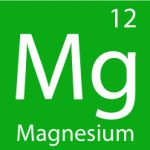If you wondering about the ins and outs of what is magnesium stearate and what it means to you, then you are in the right place.
The questions surrounding magnesium stearate are becoming much more relevant these days as more and more people are turning to magnesium supplements to gain their recommended daily intake of magnesium of 320mg for women and 420mg for men (NIH).
The magnesium in soils and foods has drastically decreased by up to 24% over the past 60 years and so it has become greatly difficult for humans to get sufficient magnesium to fulfil the body’s needs.
Magnesium is vital for:
 Heart health and normal blood pressure
Heart health and normal blood pressure- Skeletal strength
- Prevention of kidney stones and gallstones
- Enzyme production and healthy digestion
- Energy production
- Calming the mind
- Producing serotonin
- Cell production
- Electrolyte balance
- Normal nerve and muscle function
For more information on the benefits of magnesium click here.
Eating magnesium rich foods as part of a balanced diet is not usually doing enough to get our required amount of 300mg per day for women and 400mg for men.(source NIH)
For this reason, many more people are starting to complement a healthy diet with magnesium supplements for the benefit of their overall health and longevity.
What is Magnesium Stearate and is it a Bad Thing?
Some of the most commonly found magnesium supplements contain magnesium oxide, magnesium chloride, magnesium citrate, magnesium gluconate.
For a list of the best magnesium supplements click here.
Many of the supplements available on the market today contain an additive called magnesium stearate.
Magnesium stearate is only found in very small doses as an additive in these supplements and is probably not harmful. However, in large doses it is almost certainly so.
What is Magnesium Stearate also Known As?
- Magnesium Stearate
- Vegetable Stearate
- Steric Acid
These are all forms of magnesium stearate which may be seen on the ingredients label of commonly available supplements.
What is Magnesium Stearate Good For?
- Lubrication – Magnesium stearate works by covering the powder and preventing it from sticking to the machinery during manufacture. This speeds up production and is used so commonly because you only need a tiny amount to have a beneficial effect. This same lubricative effect assists the tablets to be more easily swallowed because they will slide on down the oesophagus and into the intestine.
- Cost effective – as a bulking agent, magnesium stearate adds to more content to the supplement pills, and only a tiny amount is required to have the incredible lubricative effects which aid faster production.
What is Magnesium Stearate Bad For?
While providing lubrication in the factories and in your gastrointestinal tract seems to be the major benefit to magnesium stearate, we were able to come up with a few more possible negative effects.
- Possible detrimental effect on the absorption of nutrients
- Possible allergic reaction
- Toxicity in large amounts
- Contamination during production
- T-cell Suppression
- GMO
None of these side effects have actually been proven in a laboratory environment to show that magnesium stearate has a harmful effect in humans in the miniscule doses that it is taken in supplements.
What is the Verdict?
Magnesium stearate is not proven to be harmful in tiny doses and is a non-toxic additive commonly found in a number of supplements.
However, if you like your supplements organically sourced and free from bulking agents and GMO additives, it is easy to obtain magnesium compounds which are free from magnesium stearate. Read the labels of supplements before purchase so you know what you are consuming.
What are the Options for Magnesium Stearate Free Supplements?
Organic magnesium chloride is mainly sourced from the ancient Zechstein Seabed in North West Europe, Jordan’s Dead Sea, the Great Salt Lake in North America and is often extracted using gentle methods of solar evaporation. The magnesium that you are getting from these pure sources is 100% pure and raw and natural and has much better absorption rates and bioavailability.
Learn more:
The topical applications of magnesium supplements for example magnesium oil and magnesium flakes are unlikely to contain additives such as magnesium stearate.
For further information and pricing on examples of topical and oral magnesium which are magnesium stearate free,
please click on the pictures below:
If you are pregnant or breastfeeding, are on medications or have kidney or liver disease, please see your doctor before commencing magnesium therapy.
Please comment below any questions regarding what is magnesium stearate or drop us an email: info@whatismagnesiumdeficiency.com











Permalink //
Good article, as a health conscious person I’ve done a little bit of research about Magnesium and I’ve used a few supplements here and there. But I never did it for a long period of time, I guess I was concerned about Magnesium toxicity. You stated that Magnesium stearate is not harmful in tiny doses but is it effective in tiny doses?
Permalink //
Magnesium toxicity is super rare and is only a risk factor if you don’t follow the recommended dosage on the supplement and take too much.
Excess magnesium is easily depleted by your kidneys and bowels so it is not a problem if you have supplements on top of an already rich diet, as long as you don’t exceed the advised supplement dose.
The use of transdermal magnesium is advisable if there is a concern with the way the body metabolises the magnesium, such as in the case of chronic bowel or kidney disorders.
Magnesium stearate does not contribute to your elemental magnesium amount (i.e. the amount of magnesium that is actually available for use). It is an additive that is merely used for lubrication and improvements to production. The tiny amount of magnesium stearate is effective in providing the benefits described in the article above, and at levels low enough to be non-toxic to the body.
Please read the article again or have a look at some of the best magnesium supplements here.
Regards,
Kristine G
Permalink //
A lot of food for thought, no pun intended. I never knew about the benefits of magnesium and about the fact that we do not usually get enough of it. I certainly did not know that certain magnesium supplements would be better than others. I am always interested in eating healthy, so this is very useful info for me.
Permalink //
That’s great Ben.
Have a look at Best Magnesium Supplements for more info.
Regards, Kristine
Permalink //
So is magnesium found in green vegetables? And does it enter the plant from the soil? Fertilization of soil is good for replenishing the magnesium that crops receive isn’t it? I don’t know much about it I guess, but these are things I’ve heard. And I never give much thought to whether or not I get enough magnesium in my diet. I have had kidney stones, and I see you say that magnesium can be good at preventing them, is that right? I have lots of questions, don’t I? I would be interested in the answers though, thanks.
Permalink //
Hi Jim, your questions are very relevant. Please feel free to email me at info@whatismagnesiumdeficiency.com for further information.
Kidney stones are caused by an oversupply of calcium and magnesium helps to reduce this by minimising excess serum calcium and balancing the electrolytes.
And yes, you are correct that magnesium comes from the soil but the industrial farming methods of the 20th and 21st centuries have depleted the soil’s magnesium beyond recognition so, unless you are self sufficient or getting your fresh produce from small local organic farms, the magnesium levels will be comparatively low.
Best of luck in our quest for better health Jim. Don’t forget to drop us an email.
Regards, Kristine G
Permalink //
Yes i have been reading online for a ling time that there is certain chemical being spray called aerosol and they have tested the soil over the years and noticed a decrease, its very important that we get our correct balance of nutrients thank you for making this available!
I know that this probably affects so many people and we need to be able to get others aware of how to fix their problems
Permalink //
Would you believe Kala that scientists have measured a magnesium decrease of up to 26% in our fruit and vegetables, meat and dairy?!
Please share the magnesium message!